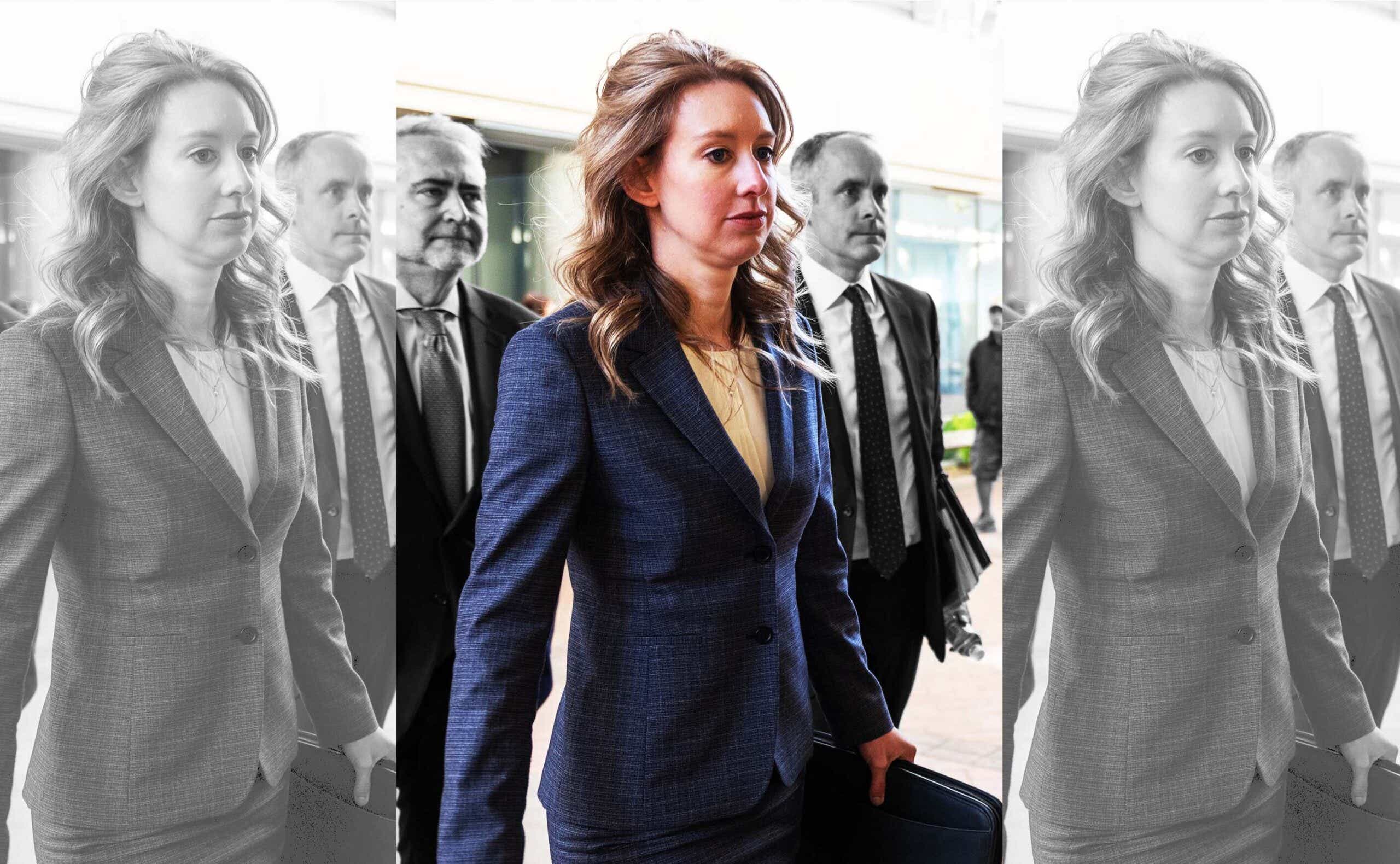Theranos founder Elizabeth Holmes came to her own defense Monday for the second day of her testimony at her criminal fraud trial. Here’s the rundown on her newsmaking time on the stand.
What is Elizabeth Holmes accused of?
Holmes is looking at 11 federal fraud charges over allegations that she knowingly defrauded investors out of millions in order to raise money for her blood-testing start-up, Theranos, which claimed to have developed technology to test for more illnesses with less blood than competitors. She has pleaded not guilty and denies all charges against her, but she could face up to 20 years in prison on each count.
It’s important to note that her trial is separate from Ramesh "Sunny" Balwani, a former Theranos executive who also dated Holmes during their time at the company. Balwani faces the same charges, but he won’t be tried until next year. In court filings, Holmes has claimed that he was emotionally abusive and controlling, which he’s denied.
What was Elizabeth Holmes' defense?
After her second day on the stand, Holmes’s lawyers asked her questions to push back against the prosecution’s claims that she defrauded investors. Holmes deflected blame and rejected a key allegation: that she falsely claimed Theranos’s technology had been “comprehensively validated” by reputable pharmaceutical companies.
Holmes said she did, in fact, work with those companies on clinical studies, but the government alleges Theranos actually doctored the reports from two major companies, Pfizer and Schering-Plough.
Why is Elizabeth Holmes testifying?
In an unexpected move, Holmes first testified Friday after federal prosecutors rested their case. There could be a number of reasons why she took the stand, but analysts say it’s likely an attempt to paint her in a more sympathetic light.
After all, this is something she hasn’t shied away from. Holmes, who had a baby in July, has already shown up to the courtroom carrying a diaper bag. “Her lawyers are apparently convinced — and they may be rightly so — that she can be very persuasive,” says Ellen Kreitzberg, a professor at Santa Clara University School of Law.
How common is it for a defendant to take the stand?
Elkan Abramowitz, a leading white-collar criminal defense lawyer, says it’s “rare in a criminal case” for the defendant to take the stand “unless he or she has what we call an affirmative defense, such as alibi or self-defense.” A recent and notable example of this was Kyle Rittenhouse's tearful testimony in his homicide trial, during which he was ultimately acquitted.
Abramowitz explained that sometimes a defendant’s testimony about a lack of willfulness or intent can help — if it’s credible. But in most cases, they “would lose ground.”
But Abramowitz also points out that the move poses some risks for both sides, especially given Holmes’s powerful charisma.
“The risk for the prosecution is that if she in fact is a talented fraudster who deceived the entire world about Theranos, including her sophisticated board, can she deceive 12 ordinary citizens of the jury?” he tells us.
How common are white-collar criminal cases like fraud?
While these types of cases are common, it’s “very unusual” for them to go to trial, and most of them are settled out of court, according to Kreitzberg. In fact, they may be becoming even less common — these kinds of cases in Silicon Valley alone have dropped from 350 to 57 over the last 25 years, according to The New York Times.
One of several possible explanations for why: Kreitzberg says fighting white-collar crime has become less of a priority for the Department of Justice since the Sept. 11 attacks, when it turned its attention to addressing terrorism.
What’s next?
Now that Holmes’s direct examination is almost a wrap (she will take the stand again Tuesday), prosecutors aren’t expected to start her cross-examination until after the Thanksgiving weekend. Stay tuned for what is already shaping up to be a dramatic trial.









